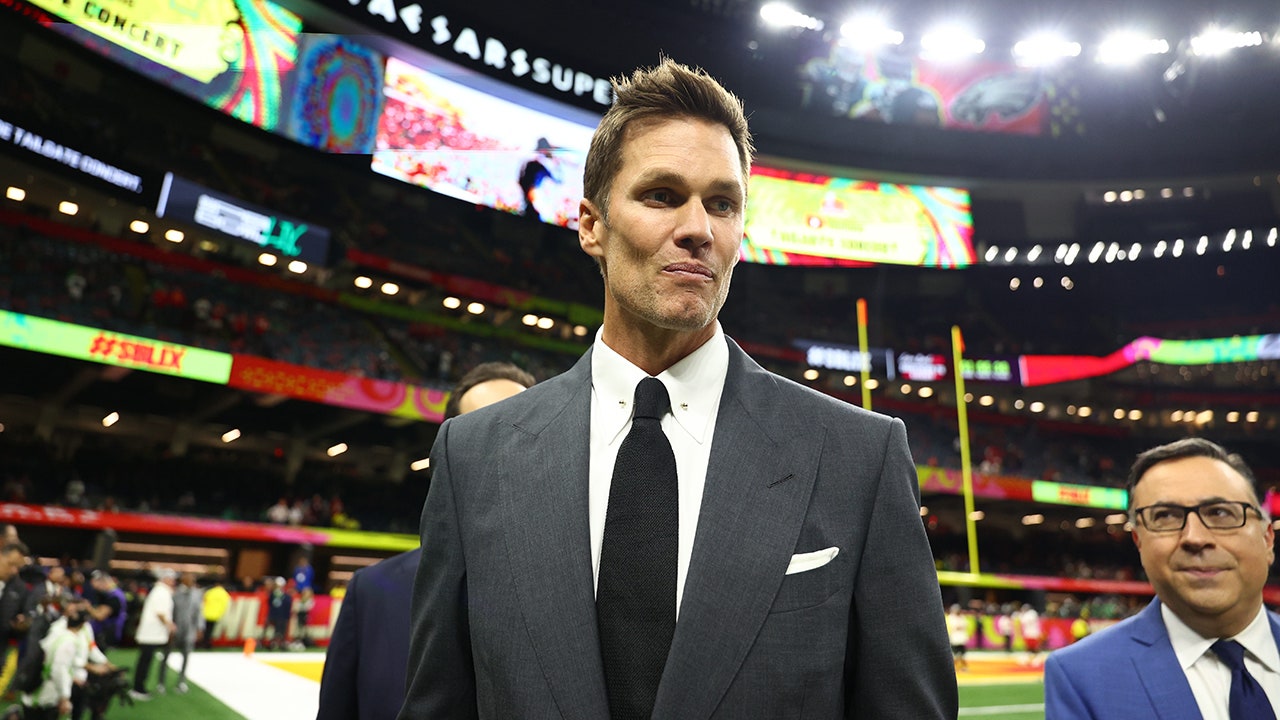Sports
Tom Brady disagrees with referees on controversial pass interference call against Eagles in Super Bowl LIX

Super Bowl LIX Officiating Sparks Controversy and Debate
The 2024 Super Bowl LIX, held in New Orleans, was one of the most anticipated sporting events of the year. However, even before kickoff, the officiating crews became a hot-button topic. Fans, analysts, and even NFL Commissioner Roger Goodell were drawn into discussions about potential bias. Earlier in the week, Goodell dismissed claims that referees might favor the Kansas City Chiefs, calling such allegations "ridiculous." Yet, as the game unfolded, it didn’t take long for the officials to find themselves in the spotlight once again, sparking heated debates that overshadowed the action on the field. The officiating decisions would prove to be as controversial as they were consequential, leaving fans and analysts divided long after the final whistle blew.
One of the most contentious moments came early in the game. In the first quarter, Philadelphia Eagles head coach Nick Sirianni made the bold decision to go for it on fourth down. The gamble seemed to pay off when quarterback Jalen Hurts connected with wide receiver A.J. Brown on a deep pass down the right sideline. However, the excitement was short-lived. Referees threw a penalty flag, calling offensive pass interference on Brown. The ruling negated the catch, leaving fans and analysts alike scratching their heads. Replays showed some contact between Brown and Chiefs defensive back Trent McDuffie, but many argued that Brown’s actions didn’t rise to the level of pass interference.
The call drew immediate criticism from some of the biggest names in football. Tom Brady, the seven-time Super Bowl winner and FOX Sports lead analyst, weighed in during the broadcast. "He’s a big, physical, strong receiver. Just getting off the press on McDuffie. Aw, don’t like that one bit. This is too critical of a game. The hand-fighting is going on down the field. What do you think, Mike?" Brady asked FOX Sports rules expert Mike Pereira. Pereira agreed with Brady’s assessment, explaining, "There’s hand-fighting. There’s a little bit of shove at the end and a trip. I think it’s one that did not need to be called." Brady went even further, asserting that such calls have no place in a game of this magnitude. "I always thought in these games you let the players play. It should be decided on the field. Don’t like that call to start the game," he said.
Despite the early controversy, the Eagles dominated the first half. By halftime, they held a commanding 24-0 lead over the Chiefs. Jalen Hurts was leading the charge, rushing for one touchdown and throwing for another. The Eagles’ offense was firing on all cylinders, while the Chiefs’ usually high-powered offense was struggling to find rhythm. Chiefs quarterback Patrick Mahomes, known for his heroic performances, was limited to just 33 passing yards in the first half. To make matters worse, he threw two interceptions, one of which was returned for a touchdown by Eagles defensive back Cooper DeJean. The first half was a stark reminder of the challenges the Chiefs faced and the strength of the Eagles’ defense.
The officiating debate didn’t end with that single call. Throughout the game, referees were under intense scrutiny, with every penalty and non-call being analyzed and critiqued by fans and analysts. The NFL has long faced challenges with officiating consistency, and Super Bowl LIX only added fuel to the fire. While the league has implemented various measures to improve accuracy, including advanced replay technology and experienced officiating crews, high-stakes moments like these highlight the delicate balance between human judgment and the rules of the game. For many, the question remains: how can the NFL ensure fairness and consistency when so much is on the line?
As the dust settles on Super Bowl LIX, the officiating decisions will continue to be a topic of discussion. While the game itself was a thrilling display of talent and strategy, the controversy surrounding the referees serves as a reminder of the complexities and challenges inherent in officiating football at the highest level. For fans, players, and coaches, the hope is that the game will always be decided by the athletes on the field—not by the officials on the sidelines. Until then, debates over calls like the one involving A.J. Brown will continue to dominate watercooler conversations and sports talk shows alike.











